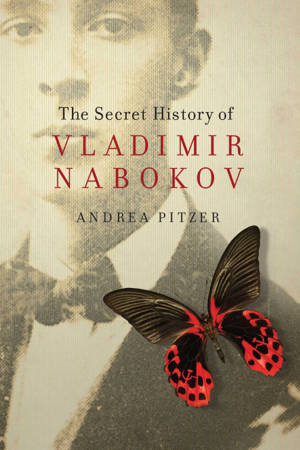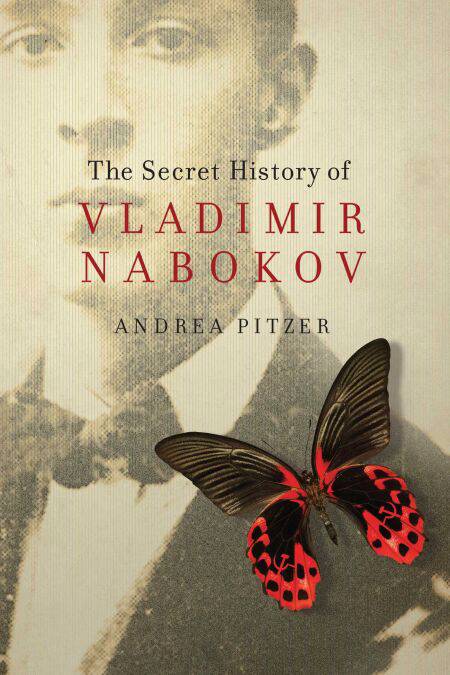
Door een staking bij bpost kan je online bestelling op dit moment iets langer onderweg zijn dan voorzien. Dringend iets nodig? Onze winkels ontvangen jou met open armen!
- Afhalen na 1 uur in een winkel met voorraad
- Gratis thuislevering in België vanaf € 30
- Ruim aanbod met 7 miljoen producten
Door een staking bij bpost kan je online bestelling op dit moment iets langer onderweg zijn dan voorzien. Dringend iets nodig? Onze winkels ontvangen jou met open armen!
- Afhalen na 1 uur in een winkel met voorraad
- Gratis thuislevering in België vanaf € 30
- Ruim aanbod met 7 miljoen producten
Zoeken
€ 13,41
+ 13 punten
Uitvoering
Omschrijving
A startling and revelatory examination of Nabokov’s life and works—notably Pale Fire and Lolita—bringing new insight into one of the twentieth century’s most enigmatic authors.
Vladimir Nabokov witnessed the horrors of his century, escaping Revolutionary Russia then Germany under Hitler, and fled France with his Jewish wife and son just weeks before Paris fell to the Nazis. He repeatedly faced accusations of turning a blind eye to human suffering to write artful tales of depravity. But does one of the greatest writers in the English language really deserve the label of amoral aesthete bestowed on him by so many critics?
Using information from newly-declassified intelligence files and recovered military history, Pitzer argues that far from being a proponent of art for art’s sake, Nabokov managed to hide disturbing history in his fiction—history that has gone unnoticed for decades. Nabokov emerges as a kind of documentary conjurer, spending decades of his career recording a saga of forgotten concentration camps and searing bigotry, from WWI to the Gulag and the Holocaust. Lolita surrenders Humbert Humbert’s secret identity, and reveals a Nabokov appalled by American anti-Semitism. The lunatic narrator of Pale Fire recalls Russian tragedies that once haunted the world.
From Tsarist courts to Nazi film sets, from the CIA to wartime Casablanca, the story of Nabokov’s family is the story of his century—and both are woven inextricably into his fiction.
Vladimir Nabokov witnessed the horrors of his century, escaping Revolutionary Russia then Germany under Hitler, and fled France with his Jewish wife and son just weeks before Paris fell to the Nazis. He repeatedly faced accusations of turning a blind eye to human suffering to write artful tales of depravity. But does one of the greatest writers in the English language really deserve the label of amoral aesthete bestowed on him by so many critics?
Using information from newly-declassified intelligence files and recovered military history, Pitzer argues that far from being a proponent of art for art’s sake, Nabokov managed to hide disturbing history in his fiction—history that has gone unnoticed for decades. Nabokov emerges as a kind of documentary conjurer, spending decades of his career recording a saga of forgotten concentration camps and searing bigotry, from WWI to the Gulag and the Holocaust. Lolita surrenders Humbert Humbert’s secret identity, and reveals a Nabokov appalled by American anti-Semitism. The lunatic narrator of Pale Fire recalls Russian tragedies that once haunted the world.
From Tsarist courts to Nazi film sets, from the CIA to wartime Casablanca, the story of Nabokov’s family is the story of his century—and both are woven inextricably into his fiction.
Specificaties
Betrokkenen
- Auteur(s):
- Uitgeverij:
Inhoud
- Aantal bladzijden:
- 448
- Taal:
- Engels
Eigenschappen
- Productcode (EAN):
- 9781639361182
- Verschijningsdatum:
- 14/11/2021
- Uitvoering:
- E-book
- Beveiligd met:
- Adobe DRM
- Formaat:
- ePub

Alleen bij Standaard Boekhandel
+ 13 punten op je klantenkaart van Standaard Boekhandel
Beoordelingen
We publiceren alleen reviews die voldoen aan de voorwaarden voor reviews. Bekijk onze voorwaarden voor reviews.











